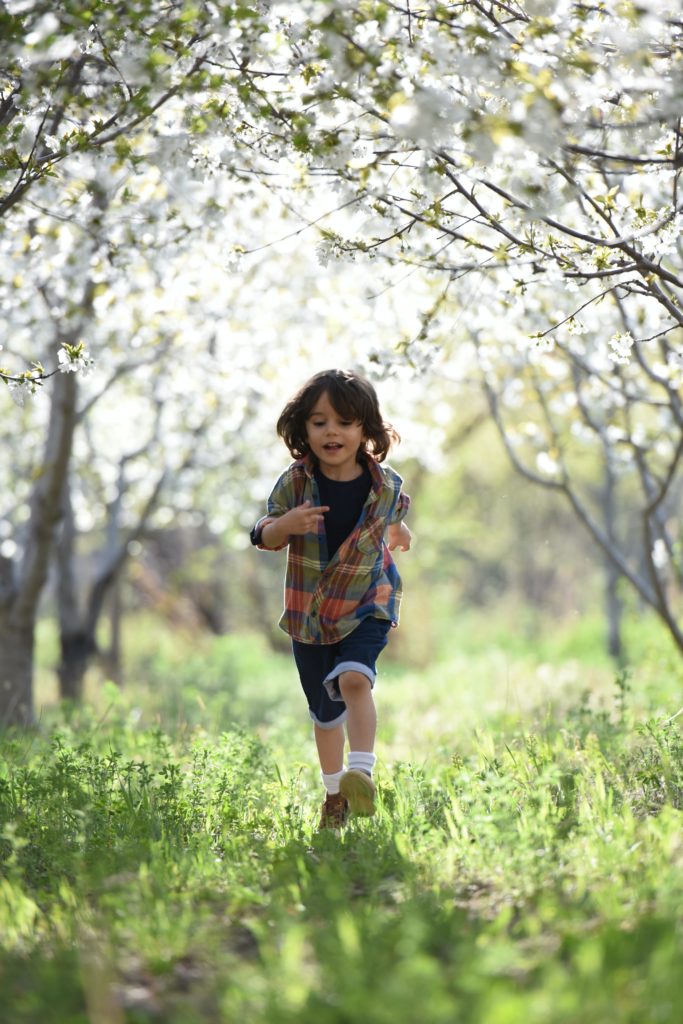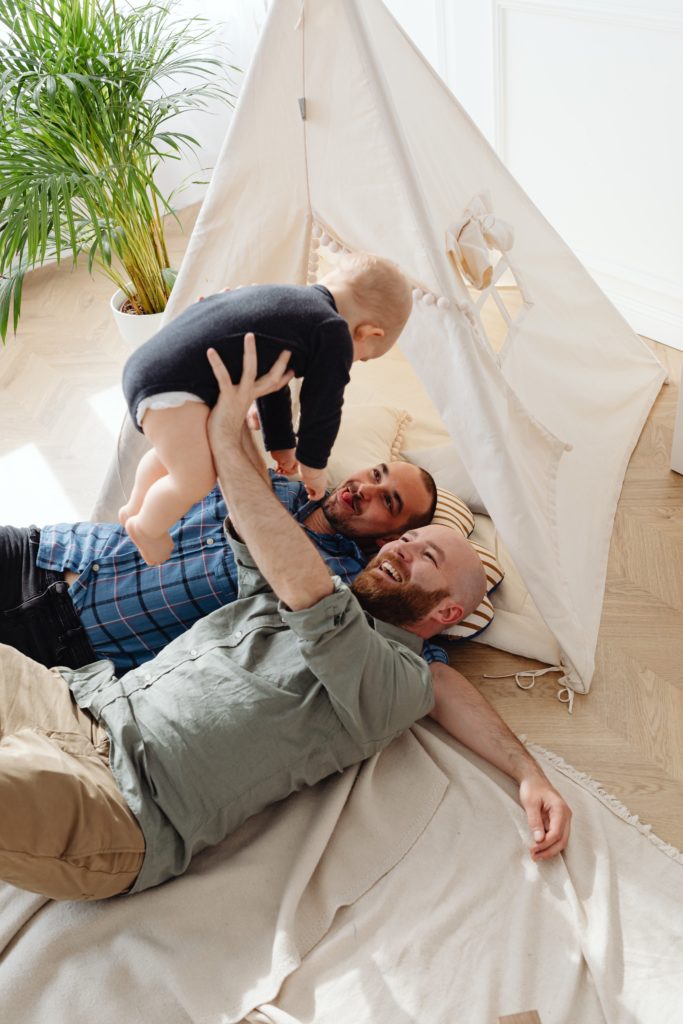
Content warning: this piece discusses child abuse and neglect.
“Children, you are about to be told one more time that you are America’s most valuable natural resource. Have you seen what they do to valuable natural resources?! Have you seen a strip mine? Have you seen a clear cut in the forest? Have you seen a polluted river? Don’t ever let them call you a valuable natural resource! They’re going to strip mine your soul. They’re going to clear cut your best thoughts for the sake of profit unless you learn to resist.”
Utah Phillips
When I was a teenager, I did not know that I was still a child. I did not have the rights of an adult, but I did not have a right to be a child, either. I had no rights. It was the worst season of my life by far. I was exactly what my parents expected me to be: a belonging.
Parents with many children often repeat the maxim, “It is easy to have a large number of children, because the older ones help with the younger ones.” The fact is that older children in large families do a lot more than merely “help.” In my experience, we shouldered most of the work. Our parents refused to acknowledge this work or would assume it was being done from the moment they delegated it. Then, if anything went wrong, it was our fault.
In my family, sexism played a key role in delegating tasks. Because I was the oldest living at home and was assigned female at birth, it was assumed that I had naturally motherly skills. I had to have them. I learned a gentle “baby bounce,” or the habit of swaying my hips back and forth to soothe infants. My right hip stuck out before I had developed natural hips, because I so often carried young children on that side. However, I was harshly reprimanded not to let my brother hold a baby. This was because he got distracted and forgot he was holding the baby – dropping them on the floor (this happened multiple times)! Rather than expecting him to learn how, like I did, I was the one held accountable for handing him a baby.
My mom would often brag about me, saying “My [deadname] is such a blessing!” on social media or after church. I was more likely to be bragged about than to receive direct praise from either parent. They loved to parade me around as a perfect example of their parenting. For a long time, I believed it was my duty to be a blessing to them, to bring them honor, and to show my loyalty. After all, they’d given me life and a livelihood, and brought me up to be a good Christian.
I no longer believe that children are blessings in the way my parents said it. I think children are so much more than that.

Children do not exist to benefit their parents. Children are whole human beings, independent of how they may benefit other people. Children are not mere belongings. Children are not “assets,” as my dad so often would say about his kids. Children should not be brought into the world to do labor. Children deserve to have full childhoods, long after they reach the age of eleven or twelve.
Children deserve human rights. That means they deserve access to education and information about the world they live in. They deserve to know what they are (humans) and how they came to exist on this planet. They deserve lives that are free of physical and emotional abuse. They deserve well-cultivated livelihoods, not neglect.
Children are not belongings. Children are also not blessings in other ways. They do not exist to bless, purify, or otherwise sanctify other people’s actions. Children are not gifts from a deity. Children do not exist to benefit other people. Children certainly do not exist to provide approval and encouragement to procreation. My parents definitely didn’t get the memo on that one, because each baby sent them the message that they should keep having more babies.
Children do not exist to provide their parents with happiness. They do not owe their parents anything. It was the parents’ decision to either conceive or adopt their children. It was the not the child’s decision. Human beings cannot consent to being brought into this world, much less into the families they end up in.
Children are the result of a very natural process: procreation. It is proven that pregnancy happens more frequently among populations that do not have enough access to birth control and education about procreation. Children are neglected and targeted the world over. Children endure homelessness, displacement, war, and genocide.
Just as a woman does not have value because of her relationship to a man, a child does not have value because of their adjacence to adult humans. A woman has value as a human being, not just being “someone’s daughter, mother, or wife.” In the same way, a child is not valuable merely because they are “someone’s child.”
A child deserves to have value as a singular human being.
Many people have not realized and embraced these facts. This is apparent in the ways children are talked about. “Childish” is an insult. “Protect the children” is more of a political rallying cry than an expression of care for children as whole human beings.
One of my favorite songs has a line that troubles me. It’s called “I’m Afraid I’ll Go To Heaven” by Moon Walker. I agree with the intent, but the phrasing demonstrates exactly what I mean: the line is “Those kids in cages may as well be yours.” If I could change just one thing about that song, I’d change the line to say, “those kids in cages are human beings.” It still works with the rhythm with the number of syllables.
Here’s the thing. The phrase “kids in cages” has come to be understood as the children imprisoned along the US-Mexico border in ICE detention centers. But appealing to parents (likely white, Christian, Right-wing parents) by saying those children “may as well be yours” misses the fact that such parents assume that children are their belongings: “Yours.” Parents refer to “my children,” and we say those children are “their children.”
And the fucked up thing is that parents do indeed treat their children like objects, belongings, theirs – and for this reason, they cannot feel empathy for imprisoned children. They do not feel empathy for the children they call “their own,” either. Because all children – both those in their own homes and those in war zones or detention centers – are not human beings to them.
How do I know? Because those same parents do not listen to their children. Across the world, children are not heard when they say they are being treated unfairly. Children are not prioritized when they confide about abuse, whether it’s physical, emotional, or sexual. More often than not, if a child says they were abused, the abuser’s word is believed over that of the child.
I say these things because they are generally true, not because there aren’t exceptions. Gentle parenting takes incredible determination because there is so much pressure to hit children, and even then, a punishment/reward/obedience system often remains. Emotional neglect is hardly understood, and few parents willingly take parenting classes before having children.

Children are not belongings. They are human beings. We have all had the experience of what it is like to be a child. It sucks for a lot of reasons, even in the best cases. Our world is not designed to give children a voice. We need to reassess how we talk to children, and how we speak about children, and how we treat them. After all, they make up a quarter of the world population. We owe children both flourishing lives as children (while they are still children) and a future world to grow up in. We are failing them on all counts.